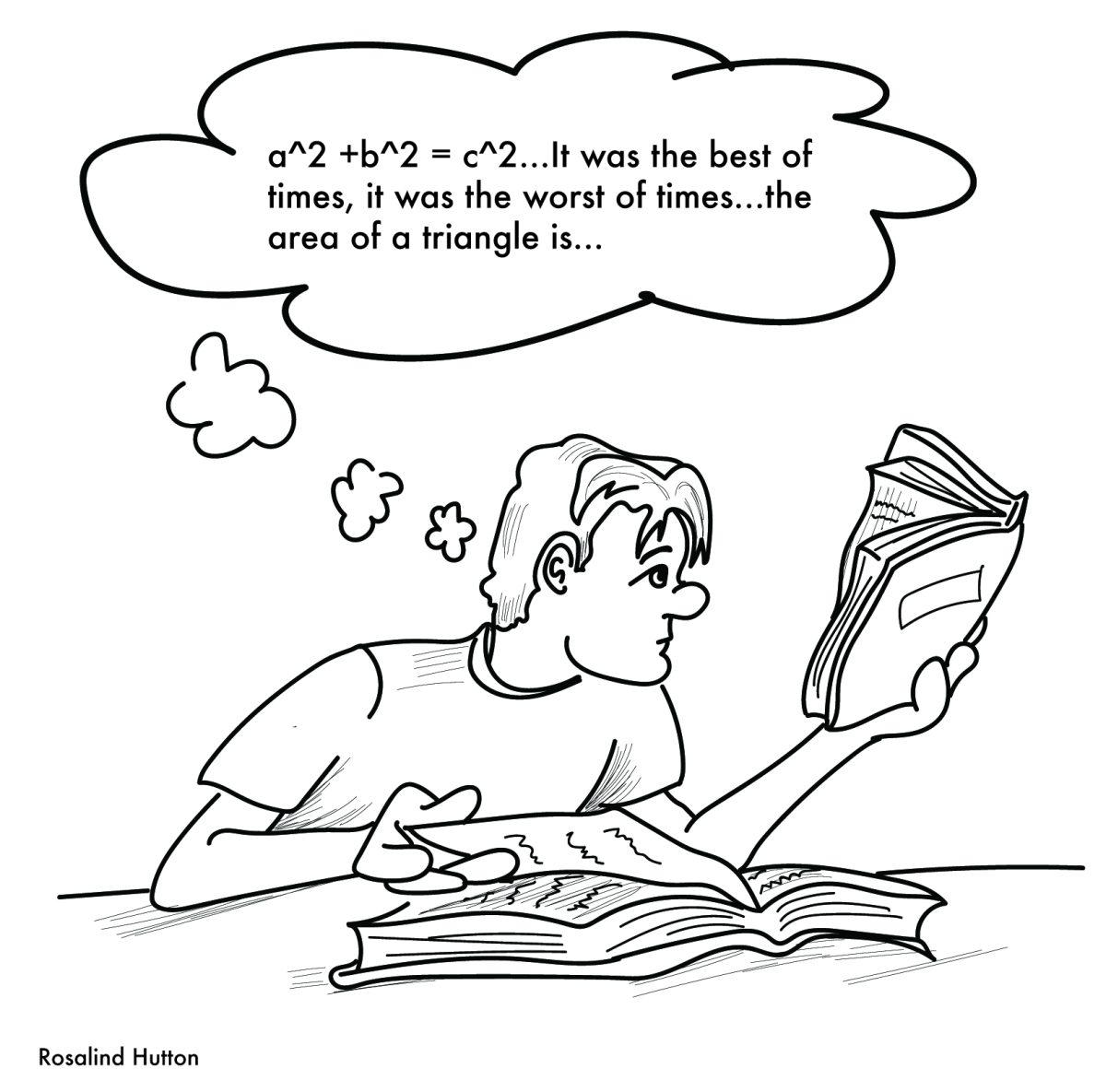When the going gets rough in school, it is tempting to wonder what the point of all our work is, and when the only answer is “maybe a good job in the future,” it is hard to not feel downtrodden and disillusioned. However, education is worth much more than the number of digits on your paycheck, and understanding the more human benefits of an education, apart from vocational concerns, is a key part of truly appreciating our work in college.
Everyone in college should hopefully know a college degree, in part, justifies its price tag with a promise of larger future earnings. Studies have continually corroborated this, as well. According to Diane Whitmore Schanzenbach et al. with the Brookings Institute, those with a postsecondary degree earn almost twice as much as those with only a high school diploma. However, it is not just the degree holder that this benefits. In a similar way to herd immunity, a larger amount of highly educated members of the workforce means wage increases across the board, regardless of degree or not. By continuing to further our education, we provide for our future families and loved ones, bolstering the economy for those less fortunate than us in the process.
On a societal level, access to education improves the outcomes for a range of different factors. As found by the Global Partnership for Education, educated parents mean more vaccinated children, and more female education leads to fewer child brides. Furthermore, a more educated populace means less likelihood of war and fewer deaths from disasters or pregnancy.
In our personal lives, an education gives us the tools to learn valuable social skills. According to the Center for Society and Health at Virginia Commonwealth University, the process of education can teach students conscientiousness, perseverance, personal control and how to establish social networks. Of course, the mileage may vary, but for the most part, we can maintain relationships and better understand our place in society because of our schooling. Therefore, education is not just about absorbing chemical formulas and the date of the Norman Conquest of England, but rather, we are absorbing how to deal with the stresses of modernity while also sustaining a social life, even if that sometimes seems impossible.
In light of this, let us consider what an education truly is. Is it nice to be able to know things? Undoubtedly. I enjoy knowing this very much, and I am sure you do, too. However, I, as an English major, will learn different things from you, presumably a mechanical engineer. Yet, there are core classes we must take to prove to the university we are proficient in basic knowledge of a wide array of subjects. This is not solely because it makes college last longer and more expensive, but in fact, it is because the university, rightly so, deems an approximate knowledge of many things useful.
An engineering major of any kind needs to take English composition because it betters their writing and, hopefully, illuminates a least a small part of why literature is culturally and intellectually important. In the same way, I must take, and thankfully already have, several math classes before I graduate, even though calculators and my experience with high school mathematics already exist. Math comprises a large portion of day to day life, so it is equally as important I learn college algebra as it is a freshman engineering student must read “A Tale of Two Cities.”
Education is about broadening our horizons and shaping us into intellectually active members of society but not simply for our benefit. Intellectually active members of society start a cycle of education which provides the same learning for future generations, and their contributions, which are predicated by their beginnings in high school and college, will advance our race to the next echelons of science, culture, theology, philosophy and technology. We learn so we may provide for our families, our friends and ourselves, but ultimately, we learn so we may better understand the world around us, which is the first step to better understanding our place in it.
Categories:
Appreciate your education and its benefits
About the Contributor

Dylan Bufkin, Former Editor-in-Chief
Dylan Bufkin served as the Editor-in-Chief of The Reflector from 2020 to 2021.
He also served as the Opinion Editor from 2019 to 2020.
0
Donate to The Reflector
Your donation will support the student journalists of Mississippi State University. Your contribution will allow us to purchase equipment and cover our annual website hosting costs.
More to Discover







